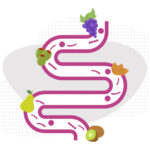Finding a nutrition plan that works for your family

Every day, millions of people follow specialized diets for myriad reasons. These can include religious or ethical beliefs, allergies or sensitivities, or meeting individual health goals. Be it vegetarianism, veganism, gluten-free, paleo, or “clean eating,” nutritional lifestyles can be different everywhere.
While diets like these and countless others do provide health and wellness benefits, most are geared toward adult physiology and call for a significant time, financial, and emotional commitment. So, what happens when you embark on a new nutritional regime but have young, growing mouths to feed? In other words, if you follow a specific diet, should your kids follow it too?
We spoke with experts from Lexington Pediatrics and Bridgewater Pediatrics of Boston Children’s Primary Care Alliance about how families can navigate varying dietary needs.
Every body is different
“Many people find that their bodies respond well to a specific diet such as keto or dairy-free,” says Dr. Justin Sweder of Lexington Pediatrics. “Many people say that eating a certain way gives them more energy, helps them sleep, improves their mood, and helps manage their weight. But be very careful when trying to apply specialized diets to children.”
Dr. Sweder suggests allowing your children to sample as wide a variety of foods as possible to learn how foods make them feel.
“Children are constantly learning about how food affects them. As they age, they’ll inevitably develop their own food preferences and hopefully find an approach to eating that fits them best.”
Dr.Justin Sweder, Lexington Pediatrics
In addition, denying your child an entire category of food may set you both up for frustration in the future as they become less able to embrace or tolerate different foods.
Limiting foods in your child’s diet also poses physical risks. For instance, a ketogenic diet (keto), first developed in the 1920s as a treatment for epilepsy, is not recommended for most children because it seriously limits carbohydrates.
Children typically need 135 grams of carbohydrates a day (approximately 45 to 65 percent of their daily caloric intake) to be mentally and physically active, but the keto diet limits carbohydrates to approximately 20 to 30 grams a day.
“Children generally benefit from a diet which includes a variety of foods, including whole-grain carbohydrates, to grow and develop and do everyday tasks such as homework and sports,” says Dr. Sweder.
“Research shows that the more flavors children — and especially babies — are exposed to, the more likely they are to eat a variety of foods when they are older,” says
Dr. Julianne Walsh, a pediatric nurse practitioner at Bridgewater Pediatrics. “This includes various meats and proteins, dairy products, and spices. Start with sensory properties such as what does it look like, is it smooth or crunchy, spicy or mild, hot or cold. Once solid foods are introduced into an infant’s diet, I typically encourage families to introduce lots of variety methodically while continuing to monitor for allergies.”
“Babies shouldn’t have honey before they’re a year old,” advises Dr. Walsh, due to a higher risk of botulism in babies under the age of 12 months.
Communication: a key ingredient
“Often though, diets represent religious or ethical values. In these cases, communication is key,” Dr. Walsh says. “It’s important to share with your children why a certain diet — say vegetarianism — is a choice for your family,” she says.
Communication is also important when a family member has an allergy, intolerance, or another medical issue that requires understanding how to avoid the food, including potential cross-contact with an allergen.
“Food sensitivities may present a great opportunity to discuss the importance of respecting others and embracing differences,” says Dr. Walsh. She encourages families to allow non-allergic children to try different foods in a safe and regulated environment whenever possible.”
Ultimately, as a parent, you play a crucial role in shaping your children’s eating habits and attitudes toward food. You also have a responsibility to allow them to form their own relationship with food and how it fuels their body.
“I encourage parents to let their children experience a large variety of healthy, unprocessed foods as possible, and especially not putting pressure on how much of something they eat. Making a child ‘finish your plate’ does not encourage them to listen to their internal signals,” says Dr. Sweder. “We want to enable them to make healthier choices in the long run, mostly because they chose to, not because Mom or Dad says so.”
Boston Children’s Alliance practices offer various resources to educate and assist families in making and accessing healthy meal options.
Find a practice near you.
Related Posts :
-

Is it “good” or “bad” for your child? Removing morality from eating
Teaching our children to eat well is not a simple task — but perhaps that’s because we are looking at ...
-

How lactation specialists can help you find answers to your nursing goals
Even if you’ve done it before, feeding a baby can be hard --- especially breastfeeding. Research has shown that ...
-

Which pain medication is right for your child? What a pediatrician wants parents to know
There’s no shortage of safe and effective pain medications for children. Acetaminophen (commonly known as Tylenol), ibuprofen (Motrin, Advil), ...
-

Partnering diet and intestinal microbes to protect against GI disease
Despite being an everyday necessity, nutrition is something of a black box. We know that many plant-based foods are good ...





